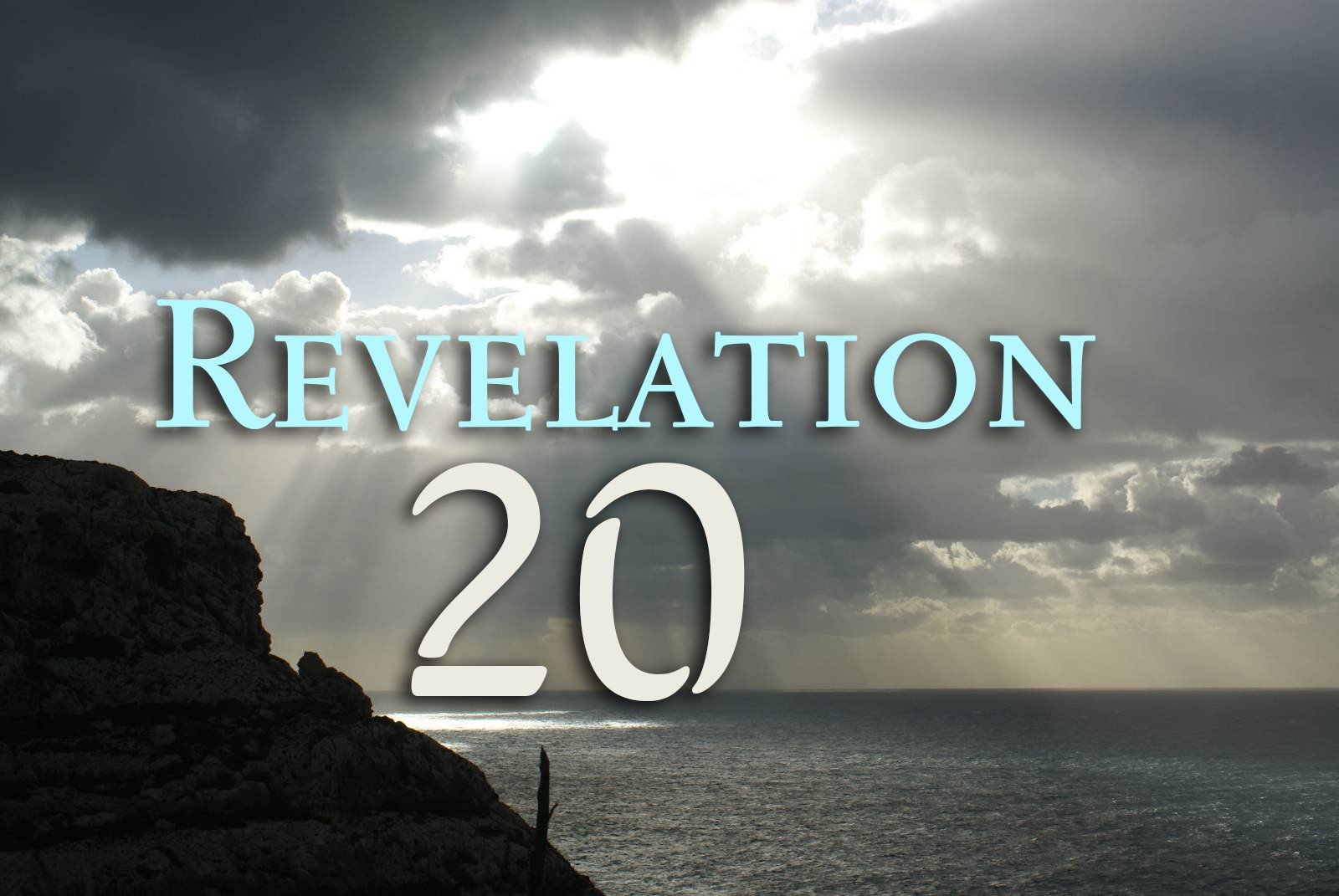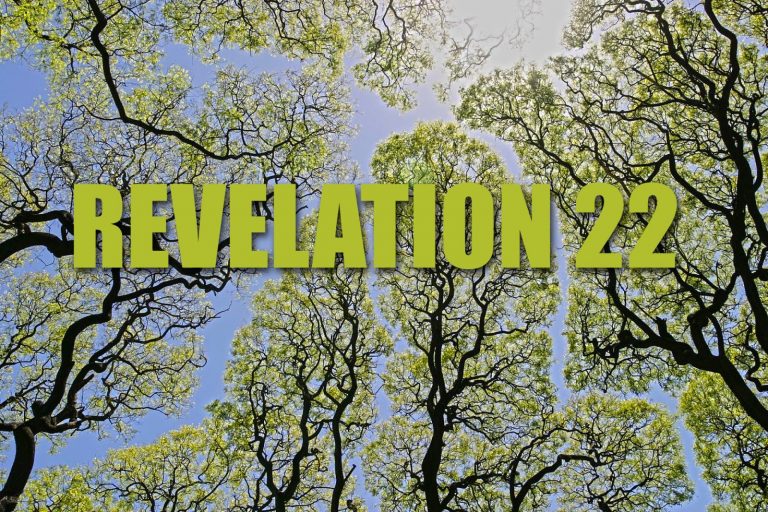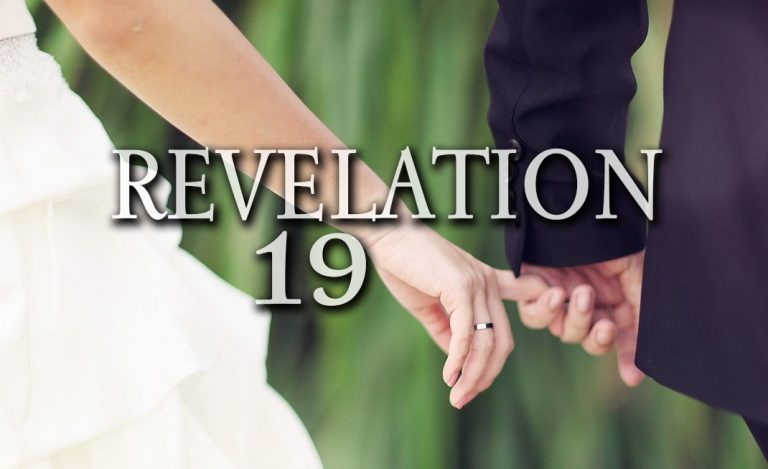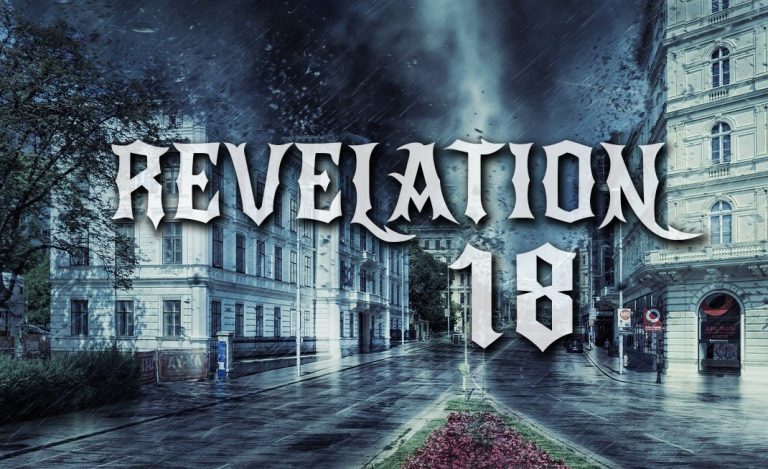The Thousand Years
20 Then I saw an angel coming down from heaven, holding in his hand the key to the bottomless pit and a great chain. And he seized the dragon, that ancient serpent, who is the devil and Satan, and bound him for a thousand years, and threw him into the pit, and shut it and sealed it over him, so that he might not deceive the nations any longer, until the thousand years were ended. After that he must be released for a little while.
Then I saw thrones, and seated on them were those to whom the authority to judge was committed. Also I saw the souls of those who had been beheaded for the testimony of Jesus and for the word of God, and those who had not worshiped the beast or its image and had not received its mark on their foreheads or their hands. They came to life and reigned with Christ for a thousand years. The rest of the dead did not come to life until the thousand years were ended. This is the first resurrection. Blessed and holy is the one who shares in the first resurrection! Over such the second death has no power, but they will be priests of God and of Christ, and they will reign with him for a thousand years.
The Defeat of Satan
And when the thousand years are ended, Satan will be released from his prison and will come out to deceive the nations that are at the four corners of the earth, Gog and Magog, to gather them for battle; their number is like the sand of the sea. And they marched up over the broad plain of the earth and surrounded the camp of the saints and the beloved city, but fire came down from heaven and consumed them, and the devil who had deceived them was thrown into the lake of fire and sulfur where the beast and the false prophet were, and they will be tormented day and night forever and ever.
Judgment Before the Great White Throne
Then I saw a great white throne and him who was seated on it. From his presence earth and sky fled away, and no place was found for them. And I saw the dead, great and small, standing before the throne, and books were opened. Then another book was opened, which is the book of life. And the dead were judged by what was written in the books, according to what they had done. And the sea gave up the dead who were in it, Death and Hades gave up the dead who were in them, and they were judged, each one of them, according to what they had done. Then Death and Hades were thrown into the lake of fire. This is the second death, the lake of fire. And if anyone’s name was not found written in the book of life, he was thrown into the lake of fire.
(ESV)
Revelation 20 Commentary
by Brad Boyles
If someone comes up and asks you, “How do you interpret Revelation?” most likely, they are referring to Revelation 20:1-10. The question of pre or postmillennialism is the first order of business. It simply answers the question, “Does Jesus return before or after the 1000 year reign?”
For simplicity, I’m going to highlight the 4 main views. There are many views that branch off of these, but here are the main 4 – Historic Premillennial, Dispensational Premillennial, Postmillennial, and Amilennial.
Historic Premillennial
Historic Premillennial would be what most of the early church fathers believed (Ireneaus, Polycarp, & Justin Martyr to name a few). The main idea of this view is that it puts the church age front and center. They believe the prophecies of the OT refer to the church age and that in the end times, it will be the church, not necessarily the Jews, who will be the main players. The timeline of this view goes Tribulation, Second Coming, 1000 Year Reign of Jesus, and then the Final Judgment.
The strength of this view is that it does line up well with John’s writing in Revelation if (and this is a big if) you believe he is writing chronologically and literally. There are many weaknesses. Most notable is the fact that this view is so literal, it becomes difficult to tie every victorious prophecy to the church. In addition, Jesus said that when He returns, it is the end of the age, and at the end of the age, people would no longer marry or be given in marriage (Luke 20) and that He will judge the world (Matthew 25).
On a literal timeline, Jesus came back in Revelation 19 (previous chapter). It is difficult to reconcile how these things could occur while at the same time believers are ruling with Jesus for 1000 years on earth. For example, how can Jesus judge all people and usher in an entirely new age but also rule with believers on earth for 1000 years?
Dispensational Premillennial
Dispensational Premillennial is similar to historic, but there are a few big differences. On the timeline, this view distinguishes a Rapture from a Second Coming while the 1000 year reign is sandwiched in between. It also separates the promises to the church age from the promises to Israel. Dispensationalists believe that God will again turn His attention back to the Jews in the end times. Many of us were indoctrinated with this view with the “Left Behind” series.
Dispensational premillenialism shares some of the weaknesses of its historic cousin, but I would add that, in my opinion, the biggest flaw is the strong emphasis put on the Rapture which actually, believe it or not, wasn’t even developed until the early 1800s. The Rapture itself is also difficult to defend given the fact that the early church (who was the main audience of John’s letter) was not raptured from their Roman tribulation.
Postmillennial
This leads us to a completely different take – Postmillennialism. This view believes that the age we are currently living in will naturally transition into the 1000-year reign of Christ, culminating with the Second Coming / Final Judgment. This is a view held by the Puritans, and proponents of this view start to take a more symbolic view of Revelation.
This is a strength of this view given Revelation is written with highly symbolic language. However, this view believes that Jesus will return to a saved earth, not return to save the earth, and most postmillennials believe that the tribulation already happened back in John’s day. This presents a lot of issues, most notably, that there is no imminent return of Christ, like a thief in the night, just as He has promised.
Amillennial
And this brings us to the last view, Amillennialism, which is the most symbolic of all the views. Amillennialists believe that we are currently living during the symbolic 1000-year reign of Christ since Jesus has defeated Satan and is reigning in Heaven at the right hand of God. From there, this view believes the tribulation will hit, and when Christ returns, He will do exactly what He has said – execute judgment, bring this world to a close, and set up a new heaven and a new earth.
Because this view is the least literal, the weaknesses are in the details. If we are living during the 1000 year reign, is Satan really bound and what does that mean? And what about the first resurrection here in Revelation 20? Is this a bodily resurrection or only a regeneration that occurs?
No Perfect View
As you can see, there is no perfect view for Revelation 20! Though church denominations are dogmatic about their particular convictions on Biblical interpretation, many have flipped flopped over the years with their views of the millennial reign. In fact, many scholars have as well. This point alone illustrates that no one has the timeline of Revelation nailed down with certainty.
When Jesus came the first time, Micah wrote that the Messiah would come out of Bethlehem, Hosea wrote that the Messiah would come out of Egypt, Malachi wrote that the Messiah would come to the temple, Zechariah wrote that the Messiah would come to Zion, and Isaiah wrote that the Messiah would come to Galilee. It would have been interesting to hear all the views that would crop up in our generation if we had lived back then! We have realized now that as difficult as these prophecies were to reconcile, Jesus did ALL of these things during His lifetime!
The point is, God’s ways are not our ways and if we had it all figured out, then we would be God. We must focus on what we do know.
We know evil is destroyed.
And the devil who deceived them was thrown into the lake of fire and brimstone, where the beast and the false prophet are also; and they will be tormented day and night forever and ever.
Revelation 20:10 NASB
We know that death and Hades will be destroyed and that those who are saved by faith will reign with Jesus.
Then death and Hades were thrown into the lake of fire. This is the second death, the lake of fire. 15 And if anyone’s name was not found written in the book of life, he was thrown into the lake of fire.
Revelation 20:14-15 NASB
As you study this for yourselves, the most important question to ask is, “What will this view lead me to do?” For example, I personally do not believe in the rapture, for some of the reasons I’ve described above. On top of this, belief in a rapture causes some to grow complacent in their faith. If Jesus is going to come to rescue us, our faith will never be tested, we don’t have to do anything difficult for His Kingdom, and the moment we are primarily focused on is our rescue, not our obedience and patient endurance.
Making disciples, loving our neighbors, and persevering through trials can easily get sidetracked if we allow our view to supersede the priorities that Jesus has already established in Scripture. So, consider your view, but probably more importantly, consider how that view changes how you are currently living, and if those changes line up with how Jesus has called each of us to live in His Word.




